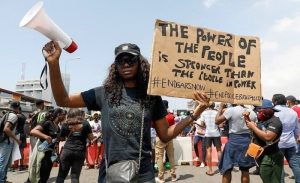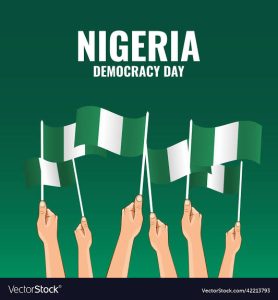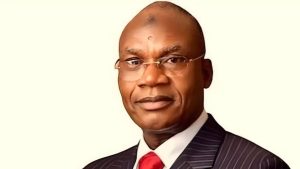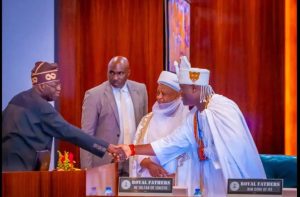EDITORIAL: 100 DAYS IN OFFICE: A RETROSPECT INTO THE ECONOMIC FACET OF TINUBU’S GOVERNMENT

EDITORIAL: 100 DAYS IN OFFICE: A RETROSPECT INTO THE ECONOMIC FACET OF TINUBU’S GOVERNMENT
President Bola Ahmed Tinubu marks his first 100 days as President of this Federation since assuming office on the 29th of May 2023. He resumed power with a considerable task ahead to revamp Africa’s most influential economy from the recent shackles it has been held with. Nigeria before his inauguration has been plagued with deep sociopolitical and economic difficulties, which resulted in massive hope by the masses on the outcome of the 2023 general elections.
He inherited a large number of problems in different ramifications of the country, including insecurity, economic instability, inflation, poverty and a general state of hopelessness.
The first 100 days of The President has been a smooth, rough ride for Nigerians. It has established a bittersweet atmosphere in the political and even economical atmosphere of the country. An administrator who has profound knowledge of the economic and financial aspects of governance, President Tinubu hit the ground running a few weeks into office by reprioritizing national spending and removing the Fuel Subsidy: A barrier that has become an abyss for the nation’s wealth from her petroleum produces.
The Fuel subsidy had gulped down over a reported 21trillion Naira between year 2005 and 2023 in the guise of providing cheaper fuel and petroleum products, while it couldn’t drive the nation to generate enough electricity to power the infrastructure and economic aspect, not provide effective education. Hence, driving the nation into a pit of martyrdom. The removal of Fuel Subsidy now largely indicates that the nation presently has future funding available to invest in other areas of the economy and boost the economic situation of the country.
Another vital economic decision implemented by this administration is the flotation of the Naira. The Floating Naira refers to a foreign exchange regime in which the value of the Nigerian Naira is determined by market forces, especially supply and demand dynamics in the foreign exchange market. In a floating exchange rate system, the exchange rate fluctuates freely depending on various economic factors, such as inflation, interest rates, trade balance, capital flows, and market expectations.
Although, the removal of the Fuel Subsidy which remains the highlight of the Tinubu’s administration, has good implications on the economy of the country. It has cast a shadow of immediate difficulty for citizens and masses of Nigeria, as it implies that Petroleum products are no longer subsidized, hence go for an increased price now. Prices of goods and services are directly influenced also by the increase in petroleum prices, as they are actively moved around the country from states of production to states of consumption. Even public transportation is not left out, prices of trips have seen almost a 100% increase. Unfortunately, it is the masses and citizens of the country that will have to bear the brunt of all these economic changes, leaving them wondering if the government can make their lives more difficult.
Through these difficult early days for the nation, the President has taken effective measures to restore hope to the citizens of the country, although to many it remains unrealistic and improbable. One of the measures is the President addressing the nation, reiterating his promise to revamp the economy and stressing on the importance of all the economic measures he has taken, noting it would definitely be of the good of the nation in futurity.
In sharp contrast to future hope, the President has also taken immediate efforts to alleviate the pain of Nigerians by approving a 5 billion Naira to each 36 states and the FCT to provide palliatives to the masses. Also, Private organizations have caught the innovation and also there are cases of increase in the salaries of staff around the country.
It’s imperative to note that it’s not ideal to judge an administration in its first 100 days, but it’s an indication of what the administration has to offer Nigerians. It’s too early to write off this government and also still in its early days for showering of praises or admiration on the administration also. To the masses, the first 100 days have brought a large dent to the renewed hope stirred up in their hearts during the 2023 elections.
This administration, should it surmount the current Legal challenges to his election to power, must do much more for the country and increasingly implement more effective measures to restore the economy and wellbeing of the citizens of Nigeria.









